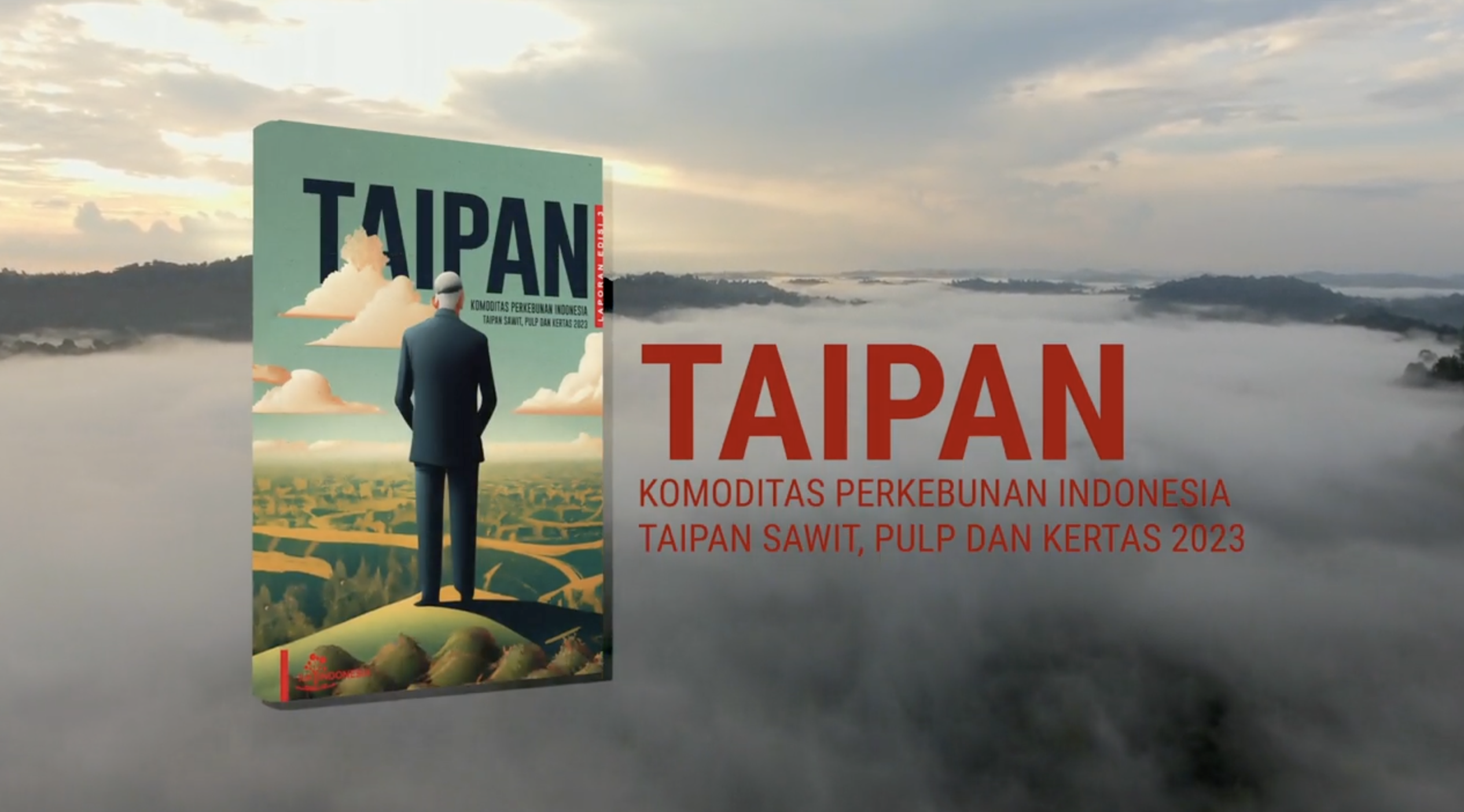15 October 2023 3 menit
Tycoon Dominance in the Indonesian Palm Oil Plantation Sector Worsens Economic Inequality.

Jakarta, October 13th, 2023. TuK INDONESIA has launched its third report on the dominance of 25 Tycoons in the Indonesian palm oil and forestry sector (2023). In this report, we refer Tycoons to the owners of palm oil and pulp and paper plantation companies who control a significant amount of land, and this year, the data revealed in this report presents an increasingly concerning picture of economic inequality in Indonesia.
According to our findings, in 2021, the total area of palm oil plantations in Indonesia reached 15 million hectares, which is roughly equivalent to the size of Tunisia. During the period from 2017 to 2021, there was a significant increase of 2.7 million hectares, equivalent to the size of Albania. The largest distribution of palm oil plantations was recorded in Riau, West Kalimantan, and Central Kalimantan, each having the largest palm oil plantation areas of 2.9 million hectares, 2.07 million hectares, and 2.05 million hectares, respectively. Of this total palm oil plantation area, the tycoons in this study control more than 3.9 million hectares of palm oil land, which is equivalent to 26% of the total palm oil plantation area in Indonesia in 2021.
Conversely, farmer households continue to experience a decrease in land ownership. Data from the Central Statistics Agency (2019) indicates that in 2013, there were 14.25 million farmers who owned less than 0.5 hectares of land, while in 2018, this number increased to 15.81 million farmers, which accounts for approximately 57.12% of the total number of farmer households that amounted to 27.68 million households during that year.
The profits of palm oil and pulp and paper plantations run by tycoons show how unequal land ownership is becoming more and more apparent. They made almost US$100 billion in revenue and US$5 billion in profit in 2021. Nine of the 24 Indonesian palm oil companies under the control of tycoons are listed on the Jakarta Stock Exchange, with the remaining companies being listed on other international stock exchanges.
This substantial income has made these tycoons individuals with immense wealth. In this report, the top 10 wealthiest tycoons in the palm oil sector are listed as follows:
- Budi Hartono (Djarum) – USD 20,500 million
- Widjaja Family (Sinar Mas) – USD 9,700 million
- Keswick Family (Jardine Matheson) – USD 8,684 million
- Anthoni Salim (Group Salim) – USD 8,500 million
- Lee Yeow Chor & Yeow Seng (IOI) – USD 4,600 million
- Bachtiar Karim (Musim Mas Group) – USD 4,000 million
- Kuok Khoon Hong (Wilmar) – USD 3,800 million
- Lim Kok Thay & Lim Keong Hui (Genting Group) – USD 2,300 million
- Martua Sitorus (Wilmar / KPN Corporation) – USD 2,000 million
- Fangiono Family (Fangiono Agro Plantation – FAP Agri) – USD 1,800 million
These tycoons’ dominance is further reinforced by financial institutions’ substantial financial support in the form of bank loans, which have reached a sizeable amount. The biggest lenders to the tycoons between 2017 and September 2022 were Indonesian banks like Bank Mandiri, Bank Rakyat Indonesia (BRI), Bank Central Asia (BCA), and Bank Negara Indonesia (BNI), according to data from Forests and Finance as of May 2023.
This continued domination will allow for more extreme exploitation of both people and the environment, as well as worsen Indonesia’s already severe economic inequality. Policies that assist small-scale farmers are therefore necessary. The report’s conclusions highlight the necessity of taking action to counteract tycoon dominance in the Indonesian palm oil industry and make sure that financial institution financing complies with the Financial Services Authority’s (OJK) sustainable financial plans.
Linda Rosalina
Executive Director
This post is also available in: Indonesian
